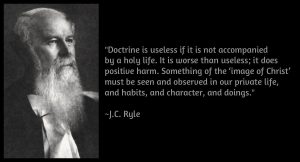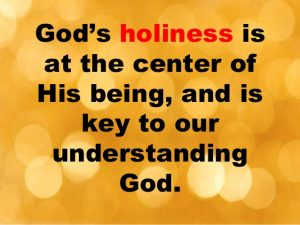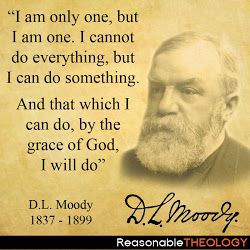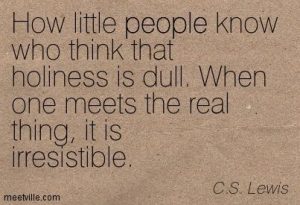
Shownotes
Wisdom-Trek / Creating a Legacy
Welcome to Day 1296 of our Wisdom-Trek, and thank you for joining me.
I am Guthrie Chamberlain, Your Guide to Wisdom
Mastering the Bible – Holiness and Theology– Worldview Wednesday

Wisdom - the final frontier to true knowledge. Welcome to Wisdom-Trek where our mission is to create a legacy of wisdom, to seek out discernment and insights, and to boldly grow where few have chosen to grow before.
Hello, my friend, I am Guthrie Chamberlain, your captain on our journey to increase wisdom and create a living legacy. Thank you for joining us today as we explore wisdom on our 2nd millennium of podcasts. This is Day 1296 of our Trek, and it is Worldview Wednesday. Creating a Biblical Worldview is important to have a proper perspective on today’s current events.
To establish a Biblical Worldview, you must also have a proper understanding of God and His Word. Our focus for the next several months on Worldview Wednesday is Mastering the Bible, through a series of brief insights. These insights are extracted from a book of the same title from one of today’s most prominent Hebrew Scholars, Dr. Micheal S. Heiser. This book is a collection of insights designed to help you understand the Bible better. When we let the Bible be what it is, we can understand it as the original readers did, and as its writers intended. Each week we will explore two insights.
Mastering The Bible – Holiness And Theology
Insight Twenty-Seven: The Biblical Concept of Holiness Includes, But Is Not Limited to, Moral Behavior

Holiness is one of the more frequent characterizations of God in the Bible.
Unfortunately, what the concept actually means is frequently misunderstood. In our modern context, holiness is typically associated with moral behavior, particularly in a negative sense—avoiding certain behaviors produces or demonstrates holiness. The behaviors to be avoided are either the moral prohibitions in the Bible or the activities a Christian subculture does not associate with God’s own character.
Holiness in the Bible relates to personal conduct, but the concept is much broader. The description "holy” is applied to an amazingly diverse list of things, including: God (Leviticus 11:44—45); people (Leviticus 21:7), days (Genesis 2:3), ground (Exodus 3:5), offerings (Leviticus 2:3), garments (Exodus 28:2), oil (Exodus 30:25), events (Exodus 12:16; Leviticus 23:27), structures (Exodus 26:33; Psalm 5:7) water (Numbers 5:17), divine beings (Deuteronomy 33:2), utensils (1 Kings 8:4), and bread (Exodus 29:34). Since many of these items are inanimate objects, moral purity is not in the picture.
In simplest terms, one thing unites the items on this list: they are all associated with God. Holiness is therefore linked to the person and presence of God. For that reason, scholars have concluded that the best way to understand holiness is God’s utter uniqueness—his “otherness” in relation to all things. When a person, place, or thing is called holy, the point is that the person, place, or thing is set aside exclusively for God’s use, service, or remembrance. Whatever is holy is by definition not to be used by, attributed to, or associated with any other person, place, or thing. Holiness speaks of uniqueness because God is unique.
For this reason, the antonym of holiness is not a word like “evil” or “wickedness.” Rather, terms like “common” or “ordinary” better describe the polar opposite of holiness. If something was for everyday use in Israel, it was not holy. That which was holy was exclusively devoted to God and his service and worship. There was no middle ground.
Behavior becomes part of a discussion of holiness in its relationship to other concepts, such as clean and unclean or purity and impurity, terms that spoke of one’s ritual fitness for being in God’s presence (which was considered “sacred space”) or participating in religious rituals and practices.
The list above demonstrates that holiness encompassed every area of Israelite life. The effect was practical. Israelites were regularly reminded of God—his absolute otherness and moral perfection. But because they had the Law and were in covenant relationship to that same God, Israelites were also regularly reminded that this transcendent being loved them and chose them from among all people.
Insight Twenty-Eight: Some of the Strangest Ideas in Biblical Law Teach Important Points of Biblical Theology

Certain laws in the Old Testament make little sense to modern readers. For example, in Leviticus chapters 12 and 15 we read of the various discharges of fluids from the body for both men and women such as menstrual periods, after birth, semen discharge, seeping open sores, diarrhea, and other situations which are not usually dinner table subject matters. If any of these situations occurred, then the person affected would be considered unclean for various lengths of time ranging from a day to over two months. It is interesting reading if you are so inclined to do so.
Why are these discharges, all of which are clearly natural, considered unclean in biblical law? In part, these help everyone remember that uncleanness was not a moral issue. Rather, uncleanness was concerned with whether a person was fit to enter sacred space—territory occupied by God’s presence or which had been set aside for God.
We associate being excluded from entering the divine presence with sin, but these discharges are clearly not sin. Scripture never describes them that way. Instead, the unclean status taught the Israelites, and can teach us, important theological truths.
Blood and semen had something in common in the Israelite worldview: they were life fluids. Leviticus 17:11 says, “for the life of the body is in its blood. I have given you the blood on the altar to purify you, making you right with the Lord. It is the blood, given in exchange for a life, that makes purification possible.” Israelites
knew that severe loss of blood meant death. Semen, of course, was where human life came from. Although the Israelites were scientifically and medically primitive by today’s standards, they knew where babies came from.
Blood and semen meant life. Their loss was, therefore symbolic of the loss of life. Consequently, forbidding a person who had lost “life force” was a way of reinforcing a simple theological point: God gives life, and his presence means life, not death.

Other biblical laws derive from this rationale. Israelite law held human life as sacred because humans were God’s imagers. Our perspective should be the same.
The Word gave life to everything that was created, and his life brought light to everyone.
That will conclude this week’s lesson on another two insights from Dr. Heiser’s book “Mastering the Bible.” Next Worldview Wednesday, we will continue with two additional insights. I believe you will find each Worldview Wednesday an interesting topic to consider as we build our Biblical worldview.
Tomorrow we will continue with our 3-minute humor nugget that will provide you with a bit of cheer and help you to lighten up and live a rich and satisfying life. So encourage your friends and family to join us and then come along with us tomorrow for another day of our Wisdom-Trek, Creating a Legacy.

If you would like to listen to any of our past 1295 treks or read the Wisdom Journal, they are available at Wisdom-Trek.com. I encourage you to subscribe to Wisdom-Trek on your favorite podcast player so that each day’s trek will be downloaded automatically.
As we take this trek together, let us always:
- Live Abundantly (Fully)
- Love Unconditionally
- Listen Intentionally
- Learn Continuously
- Lend to others Generously
- Lead with Integrity
- Leave a Living Legacy Each Day
I am Guthrie Chamberlain reminding you to Keep Moving Forward, Enjoy Your Journey, and Create a Great Day Everyday! See you tomorrow!